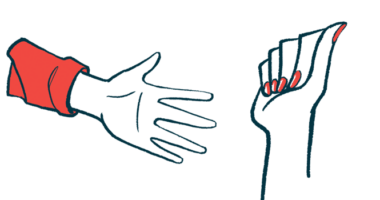First Skin Lupus Patient Dosed in Phase 2/3 Trial of Litifilimab
Study is expected to enroll about 474 patients at more than 200 locations worldwide

The first participant has been dosed in a pivotal Phase 2/3 trial testing Biogen’s anti-inflammatory medication litifilimab (BIIB059) in people with cutaneous lupus erythematosus (CLE), the company announced.
The study, called AMETHYST (NCT05531565), is recruiting adults with CLE, whose disease is active despite standard antimalarial treatment, at sites in Florida and Michigan. It’s expected to enroll around 474 patients across more than 200 sites worldwide.
“We are excited to advance litifilimab into what will be one of the largest clinical studies in CLE, where there are currently insufficient treatment options that address the needs of people living with this disease,” Priya Singhal, MD, head of global safety and regulatory sciences and interim head of research and development at Biogen, said in a press release.
CLE, sometimes referred to as skin lupus, is a form of the disease that mainly affects the skin, though it may also impact other organs in the body. AMETHYST is open to participants with skin-only or systemic (bodywide) disease.
For the first 20 weeks of the two-part study, participants will be given litifilimab or a placebo, administered via injection under the skin, every four weeks, with an additional dose after the first two weeks. At week 24, patients originally on a placebo will switch to active treatment with litifilimab for the rest of the trial, which will last about a year. Patients originally assigned to litifilimab will continue treatment in the second part of the study.
The trial’s main goals are to assess treatment effects on measures of skin disease activity. Specifically, the main measures of effectiveness are the proportion of patients who have a score of 0 or 1 on the Cutaneous Lupus Activity of Physician’s Global Assessment-Revised (CLA-IGA-R) after 16 weeks, and the proportion showing at least a 70% decrease in scores on the Cutaneous Lupus Erythematosus Disease Area and Severity Index Activity Score (CLASI) after 24 weeks.
According to Biogen, steps are being taken in AMETHYST to promote the recruitment of racial and ethnic groups that have historically been underrepresented in clinical research.
“CLE is more severe and frequent among African American and Hispanic/Latino patients, compared to white patients, which is why for AMETHYST we have set enrollment targets with the objective of appropriate representation for these traditionally underrepresented groups,” Singhal said.
Litifilimab is an antibody-based therapy designed to reduce the production of pro-inflammatory signaling molecules that drive lupus by binding to a protein called BDCA2 on inflammatory cells known as plasmacytoid dendritic cells.
In a previous Phase 2 trial called LILAC (NCT02847598), treatment with litifilimab was shown to reduce skin disease activity in those with CLE and to reduce joint disease in people with the most common type of lupus, called systemic lupus erythematosus (SLE). Positive findings from LILAC ended up supporting the launch of AMETHYST.
Biogen is conducting two Phase 3 clinical trials, TOPAZ-1 (NCT04895241) and TOPAZ-2 (NCT04961567), to further test litifilimab in adults with SLE. Both are recruiting participants at sites around the globe.







